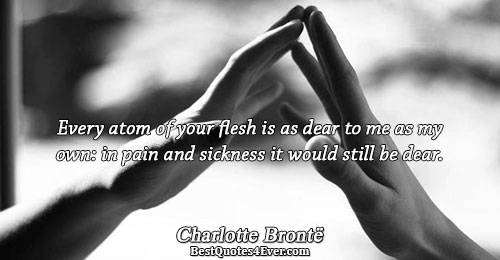Biography
Type: Novelist, Poet, Governess
Born: 21 April 1816
Died: March 1855 (aged 38)
Born on April 21, 1816, in Thornton, Yorkshire, England, Charlotte Brontë worked as a teacher and governess before collaborating on a book of poetry with her two sisters, Emily and Anne, who were writers as well. In 1847, Brontë published the semi-autobiographical novel Jane Eyre, which was a hit and would become a literary classic. Her other novels included "Shirley" and "Villette". She died on March 31, 1855, in Haworth, Yorkshire, England.
Writer Charlotte Brontë was born on April 21, 1816, in Thornton, Yorkshire, England. Said to be the most dominant and ambitious of the Brontës, Charlotte was raised in a strict Anglican home by her clergyman father and a religious aunt after her mother and two eldest siblings died. She and her sister Emily attended the Clergy Daughter's School at Cowan Bridge, but were largely educated at home. Though she tried to earn a living as both a governess and a teacher, Brontë missed her sisters and eventually returned home.
A writer all her life, Brontë published her first novel, Jane Eyre, in 1847 under the manly pseudonym Currer Bell. Though controversial in its criticism of society's treatment of impoverished women, the book was an immediate hit. She followed the success with "Shirley" in 1848 and "Villette" in 1853.
The deaths of the Brontë siblings are almost as notable as their literary legacy. Her brother, Branwell, and Emily died in 1848, and Anne died the following year.
In 1854, Charlotte married Arthur Bell Nicholls, but died the following year during her pregnancy, on March 31, 1855, in Haworth, Yorkshire, England. The first novel she ever wrote, The Professor, was published posthumously in 1857.
Novels:
- Jane Eyre, published 1847
- Shirley, published in 1849
- Villette, published in 1853
The Professor, written before Jane Eyre, submitted at first along with Wuthering Heights and Agnes Grey, then separately, and rejected by many publishing houses, published posthumously in 1857 Emma, unfinished; Charlotte Brontë wrote only 20 pages of the manuscript, published posthumously in 1860. In recent decades at least two continuations of this fragment have appeared: Emma, by "Charlotte Brontë and Another Lady", published 1980; although this has been attributed to Elizabeth Goudge, the actual author was Constance Savery.
Emma Brown, by Clare Boylan, published 2003
Poetry:
- Poems by Currer, Ellis, and Acton Bell (1846)
- Selected Poems of the Brontës, Everyman Poetry (1997)




